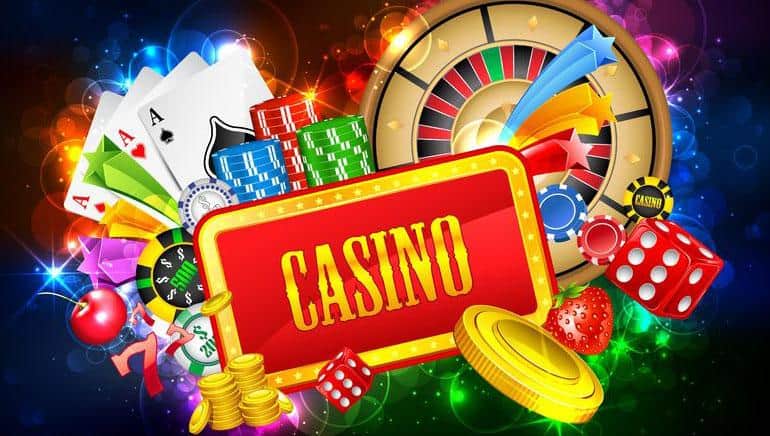
In the dynamic world of betting, gaming options have long enthralled the interest of players around the globe. These activities, ranging from timeless table options like poker to the rotating reels of slots, offer an intriguing mix of randomness and skill. While luck undeniably plays a important role in influencing outcomes, the significance of knowledge in many casino games cannot be ignored. Comprehending how expertise shapes gameplay can enhance not only a participant’s enjoyment but also their likelihood of winning.
As we dig into the inner workings of casino games, it becomes evident that some need a solid foundation of wisdom and strategy. Activities like blackjack demand more than mere luck; they demand analytical thinking, emotional insight, and tactical decision-making. In opposition, other games, such as the roulette wheel and slot machines, are primarily determined by randomness, allowing participants to rely solely on luck. This distinction raises thought-provoking questions about what truly drives achievement in the domain of casinos and how a player’s abilities can tilt the balance in their benefit.
Comprehending Skill vs. Chance within Gambling Activities
Within the world of casino games, the discussion between skill and luck is a long-standing one. Ga179 Numerous games are often categorized into two categories: those that depend predominantly on randomness, such as slots and the wheel, and those where skill plays a crucial role, like the game of poker and blackjack. The difference is important because it influences not only gameplay strategies but also the approach players adopt when participating with these games. Although luck can play a critical role in the short term, skilled players can increase their odds of winning over the long run in skill-based games.
Skill-based games, especially poker, necessitate players to understand odds, human behavior, and game strategies. A seasoned poker player can read rivals, make calculated bets, and know when to fold, all of which can lead to greater favorable outcomes. Conversely, in games that are purely chance-driven, no amount of skill can alter the odds. This implies that while a player may win big in one session, their success may often be subject to the vagaries of random outcomes rather than any strategic expertise.
In the end, both skill and luck coexist in the world of casino games, forming a dynamic environment for players. While games of chance can provide excitement and instant gratification, mastery and strategy in skill-based games offer a richer level of engagement for those prepared to invest time in refining their craft. This interplay between skill and luck defines the experiences of players and shapes their connection with the games they select to play.
The Impact of Ability on Casino Results
In the realm of casino games, skill plays a key role in determining the outcomes, especially in activities where strategy and choices are paramount. For instance, in poker, players must examine rivals, calculate odds, and make calculated bets to maximize their odds of succeeding. Unlike games that rely purely on luck, such as slot machines or the roulette wheel, poker demands an understanding of both the game mechanics and the behavior of other players, making skill a vital component of victory.
Other skill-based activities, like the game of blackjack, also emphasize the significance of player skill. Knowledge of basic tactics, card counting, and when to hit or stand can dramatically influence the house edge. A proficient blackjack player can lower this edge and improve their chances of winning over time. This contrasts sharply with activities that do not allow for such tactical play, demonstrating how the level of skill directly affects the possibility for positive results.
Moreover, even within games deemed primarily chance-driven, like craps, the choices made by players can impact their overall performance. Choosing the right bets, comprehending the odds of different results, and controlling one’s funds are essential factors that can enhance a participant’s experience and results. Thus, while chance remains a factor in casino games, skill can substantially affect how effectively players navigate these environments, leading to more positive outcomes.
Approaches for Skillful Play in Casinos
To thrive in casino games, players must develop a strong grasp of the rules and probabilities involved in every game. This basic knowledge enables individuals to make wise choices, especially in skill-based games like Texas Hold’em and 21. Becoming acquainted oneself with game strategies, such as keeping track of cards in blackjack or identifying wagering trends in Texas Hold’em, can significantly enhance a player’s odds of success. Sharpening these strategies through simulations or low-risk games allows players to improve their skills without risking substantial amounts of cash at stake.
A further key strategy is money management. Players should set a budget before entering the gaming establishment and stick to it rigorously. This involves determining how much they are willing to lose and setting limits on how much they will bet in each session. By keeping a regulated approach to gambling, players can prolong their play and reduce the risk of significant losses. Additionally, taking breaks can help maintain a clear mind and prevent rash decisions that often lead to poor play.
Ultimately, emotional control is essential in the intense environment of a casino. Players must learn to manage their emotions, particularly during times of success or defeats runs. Staying attentive and not letting emotions influence gameplay can lead to more logical decisions. Techniques such as deep breathing or walking away from the gaming table during intense moments can help keep calmness. By cultivating a balanced state of mind, players can approach casino games with confidence and expertise, thereby improving their overall experience and outcomes.
